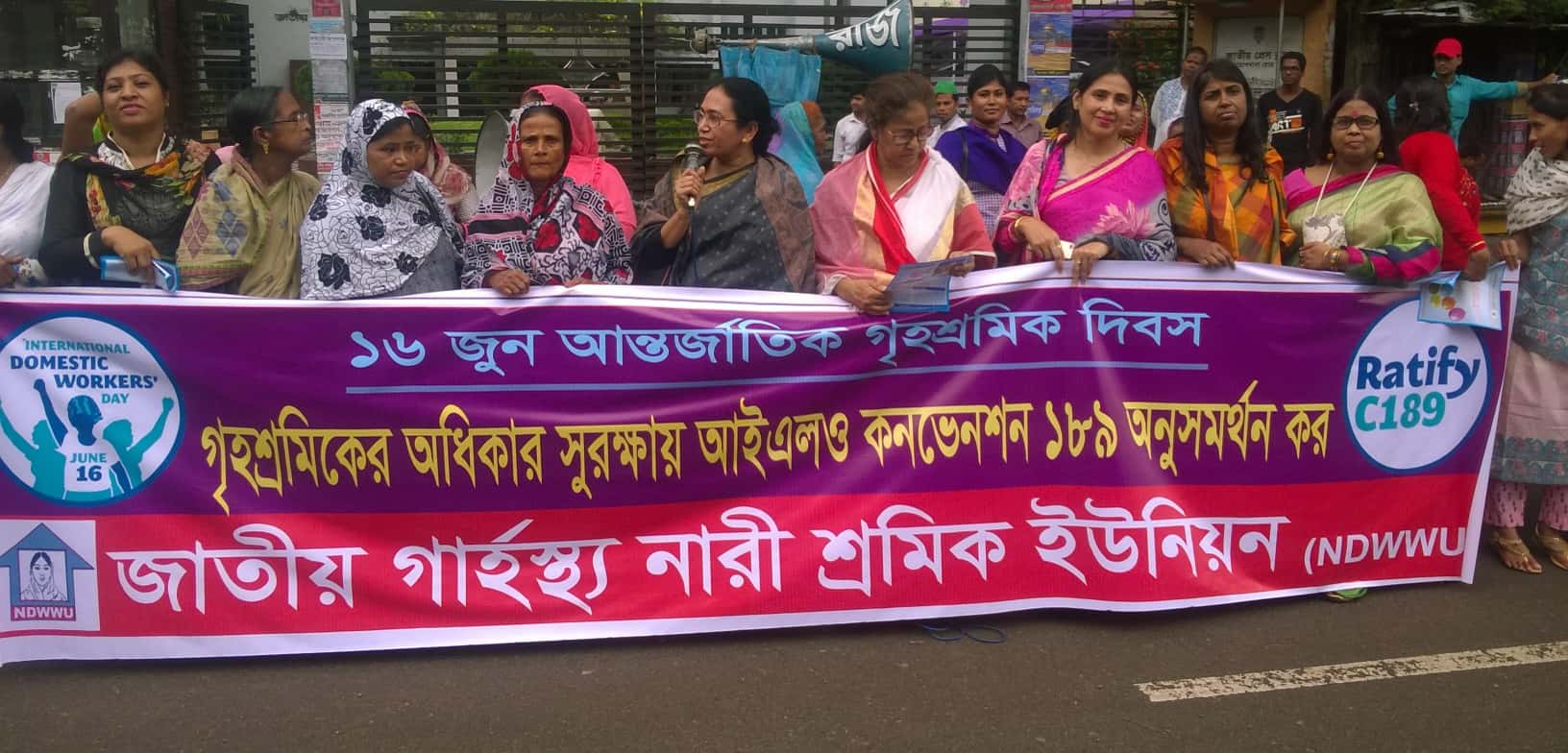Domestic work is a significant source of employment worldwide, accounting for 4 per cent of the labour force, with an estimated 67.1 million people employed in this occupation across 176 countries. Forty-one per cent of all domestic workers in the world are in the Asia Pacific region. Domestic work is characterized by several factors that leave workers in a highly vulnerable position. These include low earnings; exclusions from labour and social protections, for example WIEGO studies have found many barriers to health care access; and challenges to organization, with live-in workers particularly isolated from other workers.
WIEGO’s joint project with the International Domestic Workers Federation (IDWF) ultimately aims to empower grassroots organizations of domestic workers to integrate social protection concerns into their organizing and bargaining strategies in the South Asia region. Among the outputs of the project, which is funded by the Open Society Foundation's Women's Rights Programme, is a series of policy briefs.
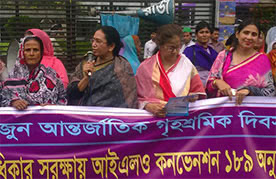
Domestic workers in Bangladesh carry the heavy cost of inadequate investment in the provision of social protection and services and survey findings show that the majority of domestic workers earn a wage that is insufficient to cover their basic needs. This policy brief makes recommendations for policy makers and scheme administrators, trade unions, and grassroots organizations and coalitions to extend social protection to this vulnerable group of workers.
WIEGO Policy Brief No. 20: Domestic Workers, Risk and Social Protection in Nepal
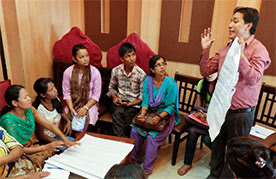
Most domestic workers in Nepal are employed in live-out arrangements with multiple employers while others, many of them adolescent girls, live in the home of a single employer. Among recommendations made in this policy brief are that domestic workers are registered with local authorities, which will allow access to relief in crises such as COVID-19; that domestic workers are drawn into the formal social security system; and that labour monitoring be done to tackle child labour and violence in the work place.
 This brief looks at the situation of the estimated 500,000 domestic workers in Delhi, India’s capital, and makes recommendations to the state government, including that a minimum wage notification be set for domestic workers. With COVID-19, large numbers of domestic workers in Delhi are said to have lost their jobs and about 80 per cent face severe to moderate economic crises. The sector was largely excluded from emergency grants and food rations.
This brief looks at the situation of the estimated 500,000 domestic workers in Delhi, India’s capital, and makes recommendations to the state government, including that a minimum wage notification be set for domestic workers. With COVID-19, large numbers of domestic workers in Delhi are said to have lost their jobs and about 80 per cent face severe to moderate economic crises. The sector was largely excluded from emergency grants and food rations.
WIEGO Policy Brief No. 23: Domestic Workers and Social Protection in Tamil Nadu
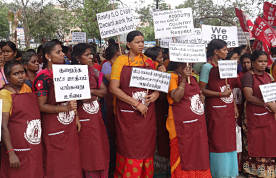
This policy brief aims to provide a descriptive picture of the condition of domestic workers in Tamil Nadu, one of the first Indian states in which the National Domestic Workers Movement (NDWM) began organizing domestic workers in the mid-1980s. Compared to several other Indian states, Tamil Nadu has relatively progressive legislation and programmes for domestic workers, including its own Domestic Workers Welfare Board.
WIEGO Policy Brief No. 24: Domestic Workers and Social Protection in Madhya Pradesh
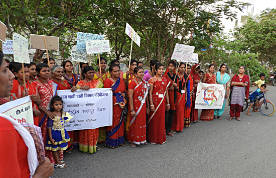
This policy brief aims to provide a descriptive picture of the condition of domestic workers in Madhya Pradesh, one of India's poorest states. Domestic workers are not included in the Madhya Pradesh state government’s labour regulations, and there is no minimum wage notification for this group of workers.
WIEGO Policy Brief No. 25: Domestic Workers and Social Protection in Bihar State
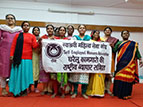
This policy brief aims to provide a descriptive picture of the condition of domestic workers in Bihar State. Bihar included domestic workers in the minimum wage notification in 2009, but while many domestic workers noted that they earn more than the stipulated minimum wage per month, most said that the minimum wage was insufficient for their households to survive.
WIEGO Policy Brief No. 26: Domestic Workers and Social Protection in Kerala State
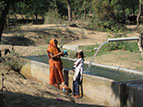
This policy brief aims to provide a descriptive picture of the condition of domestic workers in India's Kerala State, where the minimum wage for domestic workers is in the range of Rs.37.50–39.75 per hour of work and Rs.22.50–24.275 for one hour of overtime. These wages do not come with any work-related social security benefits.
WIEGO Policy Brief No. 27: Domestic Workers and Social Protection in Nagaland
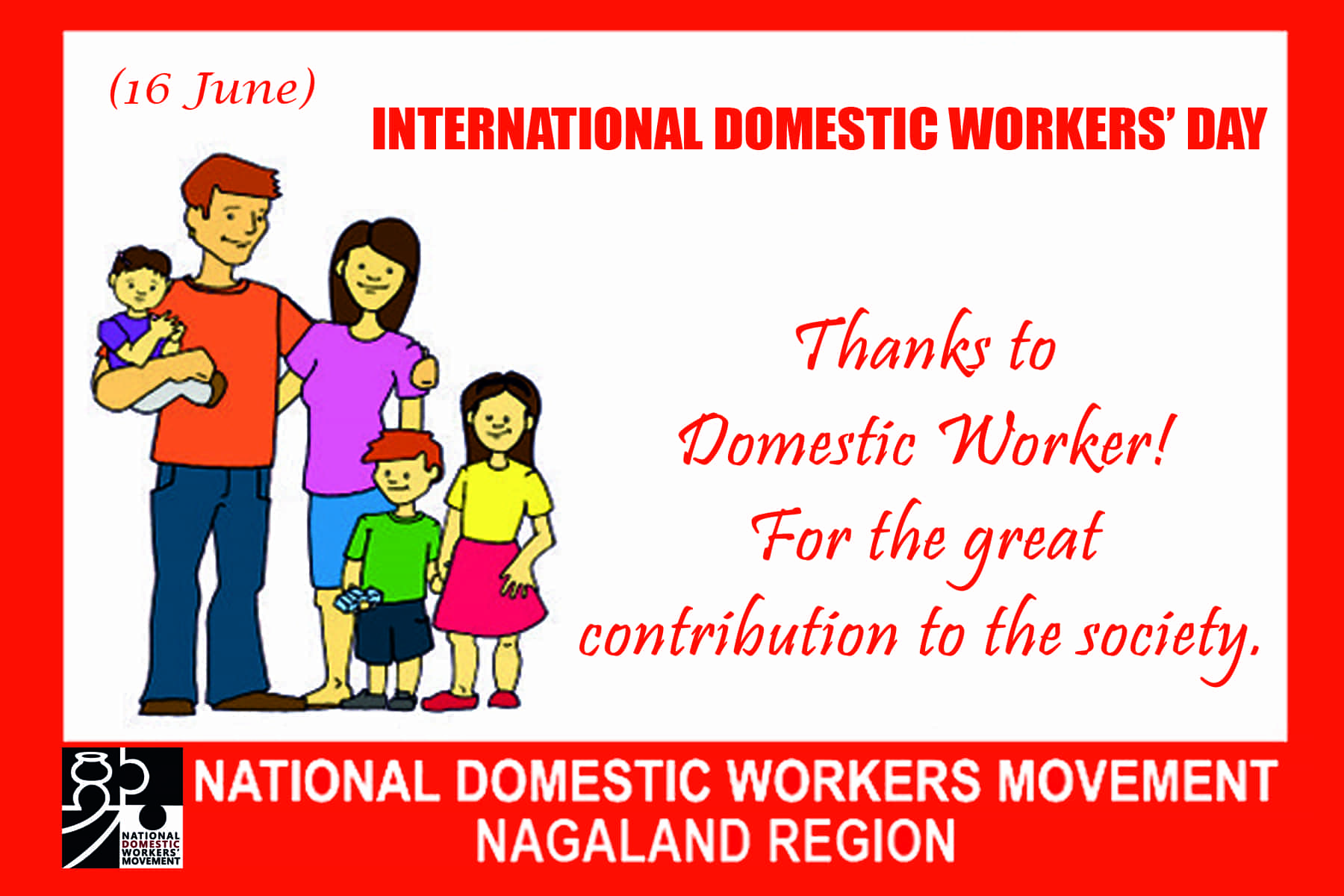
This policy brief aims to provide a descriptive picture of the condition of domestic workers in Nagaland, as well as highlight key policy recommendations. Nagaland is situated in India’s northeastern territories, which are home to almost one-third of the country’s tribal communities.
Photo Credit: NDWWU. The National Domestic Women Workers’ Union in Bangladesh observed International Domestic Workers’ Day in 2017 with a rally that focused on ratifying C189.
